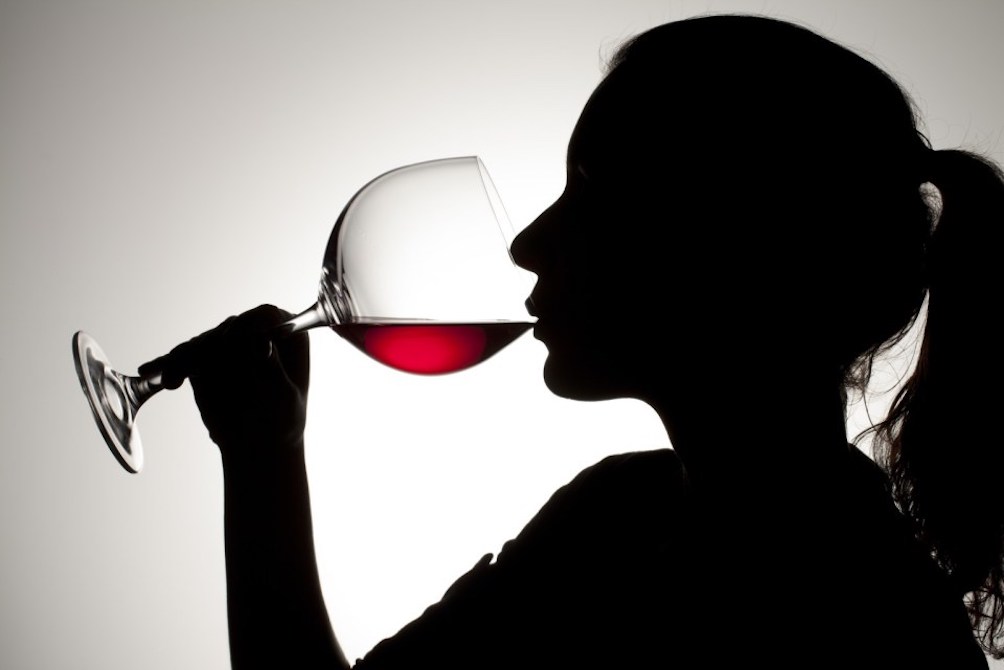Women and Alcohol
Do you wonder if your relationship with alcohol has gotten out of your control?
Have you promised yourself that you would cut back or quit, and found you just could not seem to do it?
Are you a capable and accomplished woman in control of most other areas of your life with the exception of alcohol?
Do you hide some of your alcohol consumption from family and friends?
Do you suffer from hangovers that compromise your ability to be fresh and clear-minded?
Do you find yourself googling alcoholism and other alcohol related research?
Many women privately struggle with these considerations but are afraid to seek help due to the stigma associated with alcohol issues. The negative image associated with alcoholism is particularly strong for women, yet there is a growing number of women around the world who silently suffer from alcohol-related issues.
There is nothing to be ashamed of and the fact that you are reading this is a testament of your courage!
With most addictions we assume it is the addictive substance that is the cause of the problem (nicotine, for example). However, with alcohol dependence or addiction we tend to blame the person, the assumption being they just don’t have enough will power to cut back or quit.
There is so much help out there for you!
Please contact me for a complimentary consultation. We can explore together whether I may be able to support you with your journey related to alcohol.
Thank you for reading this and I look forward to hearing from you,
Vipassana
Suggested Reading
Many women report that during their journey through alcohol recovery, reading has been a crucial element on their path to freedom. There are so many good books out there on alcohol dependence, recovery, women and alcohol, sobriety, and a number of powerful memoirs that are packed full of valuable information and research. Below, I will give you a list of some of my favorites, with a short blurb about each book. As always, feel free to email me with questions or for further reflections on any given title:
Between Breaths: A Memoir of Panic and Addiction, by Elizabeth Vargas, 2016.
This is wonderful book written clearly and vulnerably by a well-known figure in television journalism. Elizabeth Vargas courageously shares her many attempts and stumbles on the road to recovery. Vargas gives the reader an intimate view and felt-sense of the connection between anxiety and alcohol. Her journey toward freedom is fueled by the love of her children and her commitment to face anxiety head-on rather than self-medicate through the use of alcohol. One aspect I especially appreciate about Vargas’ story is the reminder that on the outside a woman can look like she has everything working in her life — wealth, career, family, beauty — yet on the inside she can be suffering desperately. Ultimately her story is one of perseverance, authenticity, and transformation.
Drinking: A Love Story, by Caroline Knapp, 2012.
This is a beautifully written book by the late Caroline Knapp. Like many powerful recovery memoirs, Knapp both tells her heart-wrenching and triumphant story while at the same time offering the reader a bounty of valuable information on addiction. For instance, she lists a quiz administered by the Council on Alcohol and Drug Dependence, as well as her answers, designed to illuminate what stage of alcoholism one places themselves. She took this quiz a few weeks before she quit alcohol for good. Answering yes to 19 out of 26 of the questions, Knapp was considered to be in the final stage of alcoholism. She likens her long and difficult journey with alcohol to a love-affair, one that started in her early teenage years. Ultimately through hitting rock-bottom, going to rehab, and finding a beautiful sober community, Knapp discovers freedom in sobriety. I think Knapp’s story is one of the strongest, most eloquent memoirs on alcohol recovery that I have come across.
Allen Carr’s Easyway to Control Alcohol, by Allen Carr, 2013.
Allen Carr offers a clear, step-by-step road map to living an alcohol-free life. Chapter by chapter, Carr dispels the myths which surround alcohol consumption. His central premise is that to quit drinking is easy, and it is only a matter of following his directions step by step, to ensure one will succeed. In many ways, his approach is a cognitive-behavioral one: he challenges the belief that quitting drinking is hard; he challenges the identification people have with being an alcoholic (while still paying his respect to AA); and he instructs his participants to have an open mind and be in a happy state as they read. His program will not be a good fit for everyone, as his approach is at odds with many in the medical establishment and as well as other recovery approaches. While I don’t agree with everything Carr writes, I do think he offers a positive and powerful approach that has supported many people in their journey toward living alcohol-free.
This Naked Mind: Control Alcohol, Find Freedom, Discover Happiness & Change Your Life, by Annie Grace, 2018.
In the tradition of Allen Carr’s approach but way more accessible, Annie Grace deconstructs myths surrounding alcohol and slowly and intelligently builds the argument that alcohol is a toxic substance. She provides a great deal of information on the body and addictive substances, alcohol being among the most addictive, up there with nicotine and heroine. She also interweaves her own personal journey with lots of powerful and vulnerable examples from her life (for example, she talks about sex with her husband after she is alcohol-free and the power of the pure pleasure that is accessible). Grace is ultra positive, encouraging, and completely non-judgmental. Reading her words is like talking to a wise and kind-hearted coach who is in your corner rooting for you all the way.
Alcohol Lied to Me: The Intelligent Way to Escape Alcohol Addiction, by Craig Beck, 2017.
Craig Beck is a trained hypnotherapist and offers a solid program in changing one’s relationship to alcohol. Similar to Allen Carr’s approach, he deconstructs the idea of addiction and challenges the notion of forever identifying oneself as an addict. He walks you through exercises such as adding up the financial impact of years spent drinking (a common and compelling strategy which some other books listed here include as well). Beck gives suggestions for dealing with “the kick” (alcohol withdrawal) as well as a vitamin supplement program he asks you to follow with precision. I think Beck’s book and approach is well-rounded, compassionate, and effective.
The Sober Diaries: How one woman stopped drinking and started living, by Clare Pooley, 2017.
In the beginning of this book I mistakenly thought it might be a light-hearted read, chronicling Clare Pooley’s first year of sobriety. While it is true that Pooley brings a wry British humor to her writing, her story is anything but light as she chronicles her courageous journey through early sobriety and ultimately her battle with breast cancer. Pooley is the mother of three children and she speaks with candor about the impact of being alcohol-free (and past alcohol use) on her capacity to parent. She gives her readers many concrete ideas to work with in one’s journey through early sobriety (how to socialize without alcohol, hot chocolate and a bath rather than a glass of wine, recognizing the “wine witch” voice trying to convince you to just have one drink). In reading her book, I found myself at times moved to tears, often laughing out loud, and repeatedly having the sense that “I just LIKE this woman!” Pooley’s goodness as a mother, wife, friend, leader (as the creator of her blog), and just great human being is evident throughout her book.
The Sober Revolution: Women Calling Time on Wine O’Clock , by Sarah Turner and Lucy Rocca, 2014.
Lucy Rocca is founder of the popular worldwide sober community Soberiestas and Sarah Turner is a cognitive therapist. Both authors share their vast knowledge of women and wine consumption in particular, including their own personal journeys to sobriety. Case examples from Turner’s work make this a unique book, a weaving together of memoir, clinical study, and sobriety program. Rocca and Turner and writing to women specifically and they are talking about wine rather than alcohol. They use the analogy of “Mr. Unsuitable,” an emotionally abusive partner who one keeps returning to, and they liken this relationship to women and wine. They spend a good section of the book on the beauty, joy, and creative life that is gained with sobriety. Rocca is inspiring and articulate as she paints a picture of how deeply transformative sobriety can be, awakening the creative spark, rediscovering hobbies, and the return of strength and rejuvenation in one’s body. I found this book to be expansive in breadth, with considerable depth — I recommend it wholeheartedly.
Drink: The Intimate Relationship Between Women and Alcohol, by Ann Dowsett Johnston, 2013.
This is an amazing book — part memoir, part research — richly packed with so much incredible information about women and alcohol. A figure in journalism and academia, Ann Dowsett Johnston has the courage to tell her own tender and inspiring story interwoven within an exhaustive research endeavor. She includes a plethora of interviews from wide-ranging sources including well-known authors, mothers, daughters, educators, college students, each with their own compelling story. Dowsett Johnston illustrates the many stresses of the high-achieving modern mother and how alcohol serves as “mommy’s little helper.” She tackles taboo topics such as alcohol consumption during pregnancy and asks controversial questions such as “Is Alcohol the New Tobacco?” She provides daunting statistics associated with drinking early in life and explores drinking on college campuses and how it lays down a path for alcohol use later in life. Reading Drink provides a deep and expansive investigation into the often-hidden world of women and alcohol. Dowsett Johnston is a beautiful and intelligent writer and her strength of heart and mind shines brightly through her words.
Blackout: Remembering the Things I Drank to Forget, by Sarah Hepola, 2015.
Difficult to read at times given the heart-wrenching truth of a blackout, Sarah Hepola chronicles her 25 year addiction to alcohol, one that started as a child when she would sneak sips of beer from her family fridge. Hepola’s description of a blackout, moments forever lost from one’s life, is told from her deep interiors. She writes, “It’s such a savage thing to lose your memory, but the crazy thing is, it doesn’t hurt one bit. A blackout doesn’t sting, or stab, or leave a scar when it robs you. Close your eyes and open them again. That’s what a blackout feels like.” I found Hepola’s book edgy, unsettling, at times funny, and in the end deeply inspiring. For all the pain that goes with hours lost from one’s life, Hepola paints the beautiful picture of her creativity and ultimately her sense of self that was robustly reclaimed in sobriety.
The Unexpected Joy of Being Sober: Discovering a happy, healthy, wealthy alcohol-free life, by Catherine Gray, 2018.
From another witty Brit, I found Catherine Gray’s book to be a quirky and delightful mix of heartfelt and sometimes gut-wrenching daily journals, solid information from neuroscience and psychology, and many helpful suggestions for both the sober-curious and alcohol-free reader. While I found the format of the book a bit choppy, I am including it here because it is filled to the brim with tender antidotes; creative sobriety suggestions; a list of famous sober people and their inspiring quotes; lists of useful websites; and a deep transmission in the latter half of the book of the pure and sparkly joy that comes with being sober.





